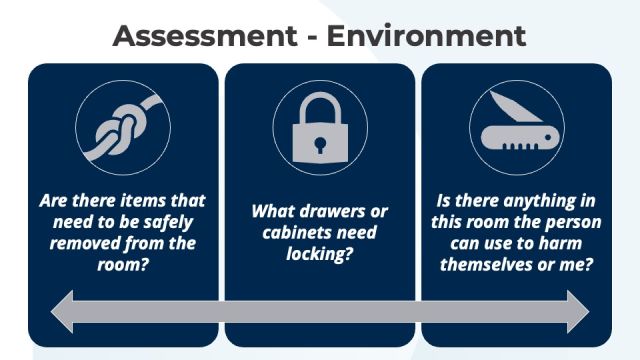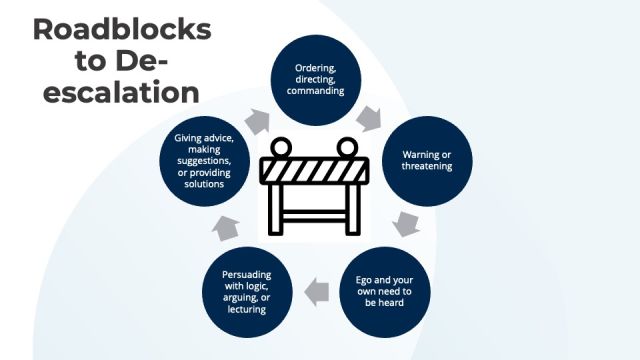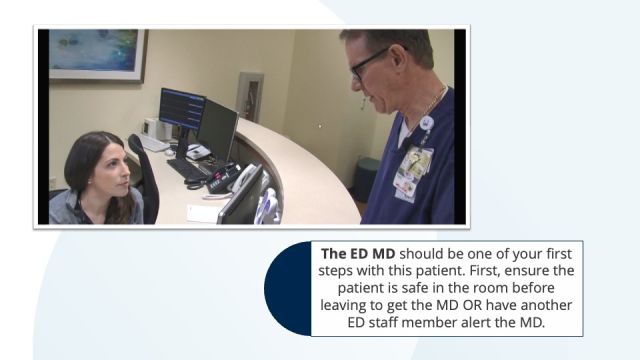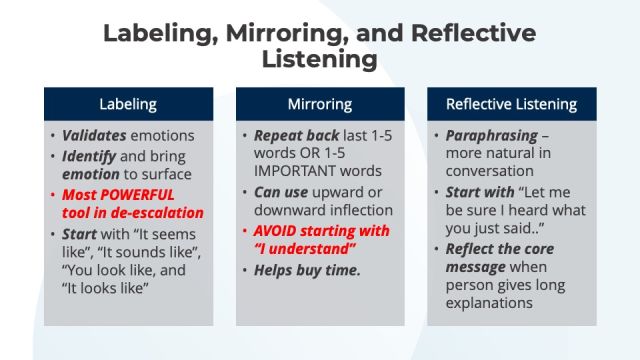Behavioral Health
De-Escalation Strategies
Understand the patient's perspective
Project: Collaborate and Improve De-escalation Practice for Violence Prevention
Innovation
Point of View Video replacing classroom didactic
Topic
Behavioral Health
The role of an Emergency Department (ED) nurse is multifaceted and challenging. Still, perhaps one of their job's most unpredictable and uncertain aspects is providing care for behavioral health patients. This unique patient population presents challenges and complexities that can leave even the most seasoned ED nurse unsure. From individuals suffering from poorly managed or exacerbated Axis One diagnoses to those with social or legal problems and those with concurrent medical issues like overdose, each encounter with a behavioral health patient is a journey into uncharted territory.
Planning a new approach
The project involves a pre-simulation de-escalation class that allows participants to experience emergency care for a Behavioral Health complaint from a patient's perspective. They see how bias and approach taken by care providers can impact the patient and the outcomes. Later, participants practice these skills in three simulation experiences. They can utilize multi-disciplinary collaboration to provide a safe care environment for the patient, colleagues, and providers.
Challenge
Expose Emergency Nurses to the variety of Behavioral Health Complaints
One of ED nurses' most significant challenges is caring for patients with Axis One diagnoses, such as depression, bipolar disorder, or schizophrenia. These patients often arrive at the ED with varying degrees of symptom exacerbation, and their behavior can be highly unpredictable.
Recognizing the potential trauma behind social and legal issues is essential. ED nurses should provide trauma-informed care, creating a safe and supportive environment.
Many behavioral health patients arrive at the ED with concurrent medical issues, such as drug overdoses or self-inflicted injuries. These situations require a delicate balance of addressing the patient's medical and psychiatric care needs.
Solution
Create a Practice Environment
Caring for behavioral health patients can be particularly daunting for new ED nurses due to the level of uncertainty involved. They may not have encountered the full spectrum of behavioral health challenges during their training, and each patient interaction may feel like stepping into the unknown. This uncertainty can lead to stress, anxiety, and feelings of inadequacy.
Combining a Point of View Simulation and a live Simulation provides opportunities to start, stop, reflect, and apply lessons learned to various scenarios.
Planning
Providing the Necessary Education
Balance coverage of regulatory and necessary documentation education with education on managing the variety of complaints and de-escalation techniques. The patient point of view classroom activity allows learners to review and dissect mistakes often made in caring for this population. They see and understand the impact on the patient. Maximize learning in the simulation experience by:
-
Utilizing Standardized Patients (Actors)
-
Planning stopping points in the simulation to reflect on and debrief the case.
-
Creating opportunities for the new nurse to implement de-escalation strategies and knowledge learned.
Evaluate
Measure and Provide Ongoing Support
Survey the participant's confidence in caring for the population, comfort with de-escalation techniques, and ability to collaborate with providers. Monitor for instances of violence, use of restraints, etc.
A singular education experience will shape initial practice patterns; ongoing education is likely needed to support the participant's understanding of further:
-
De-escalation Techniques: Education on strategies to safely manage agitated or aggressive patients.
-
Trauma-Informed Care: Guidance on providing care that recognizes the potential trauma experienced by these patients.
-
Interdisciplinary Collaboration: Training on effective collaboration with emergency and psychiatric providers, social workers, and other professionals.
-
Self-Care Strategies: Encouragement and resources for self-care to help nurses manage the emotional toll of caring for behavioral health patients.



